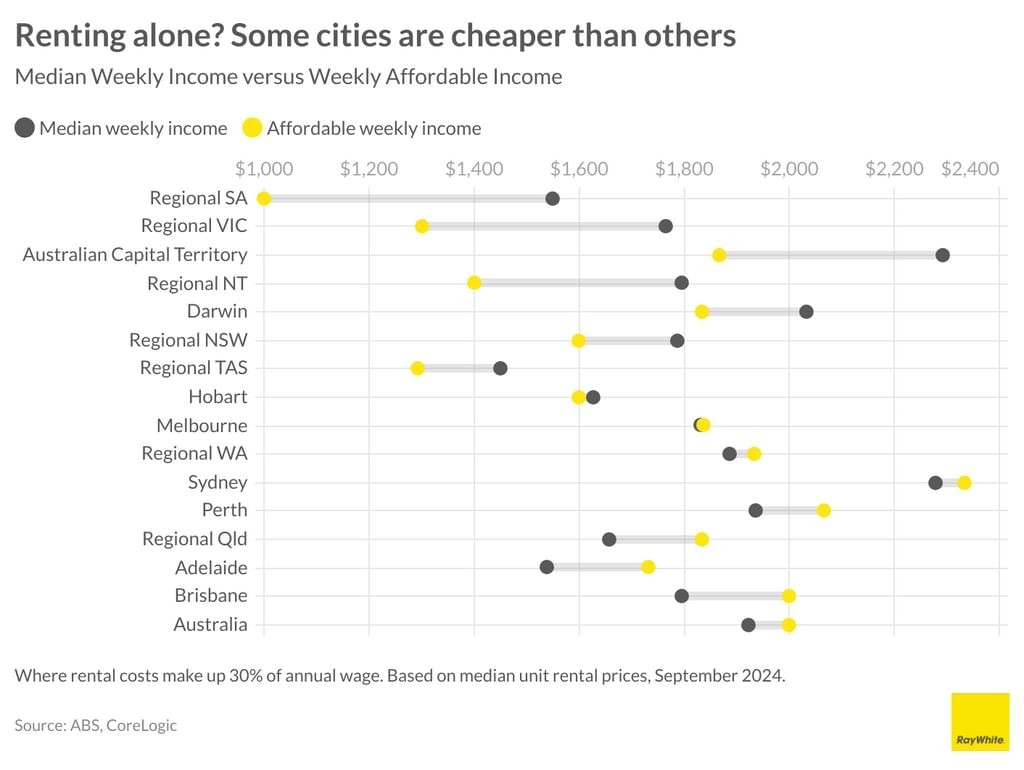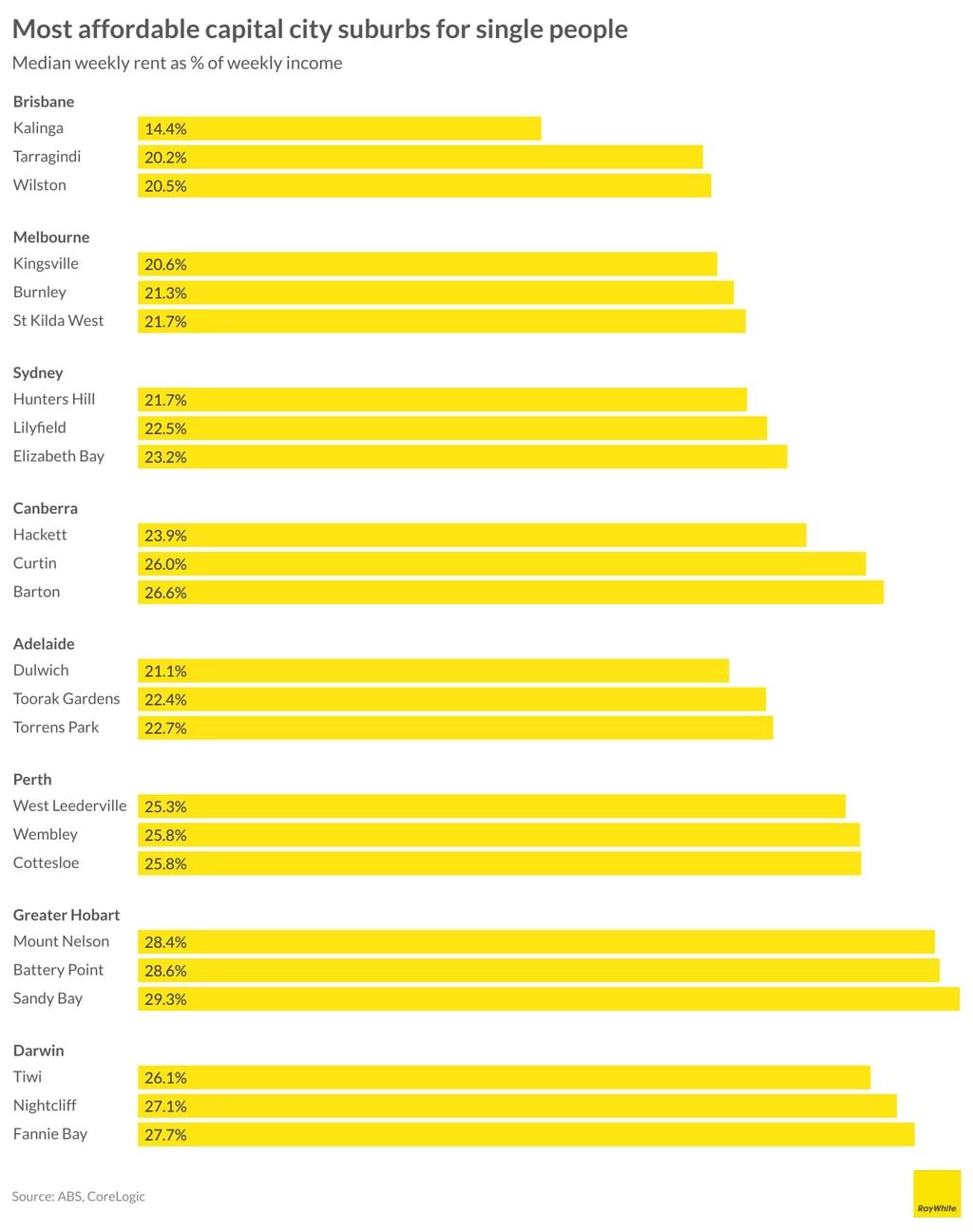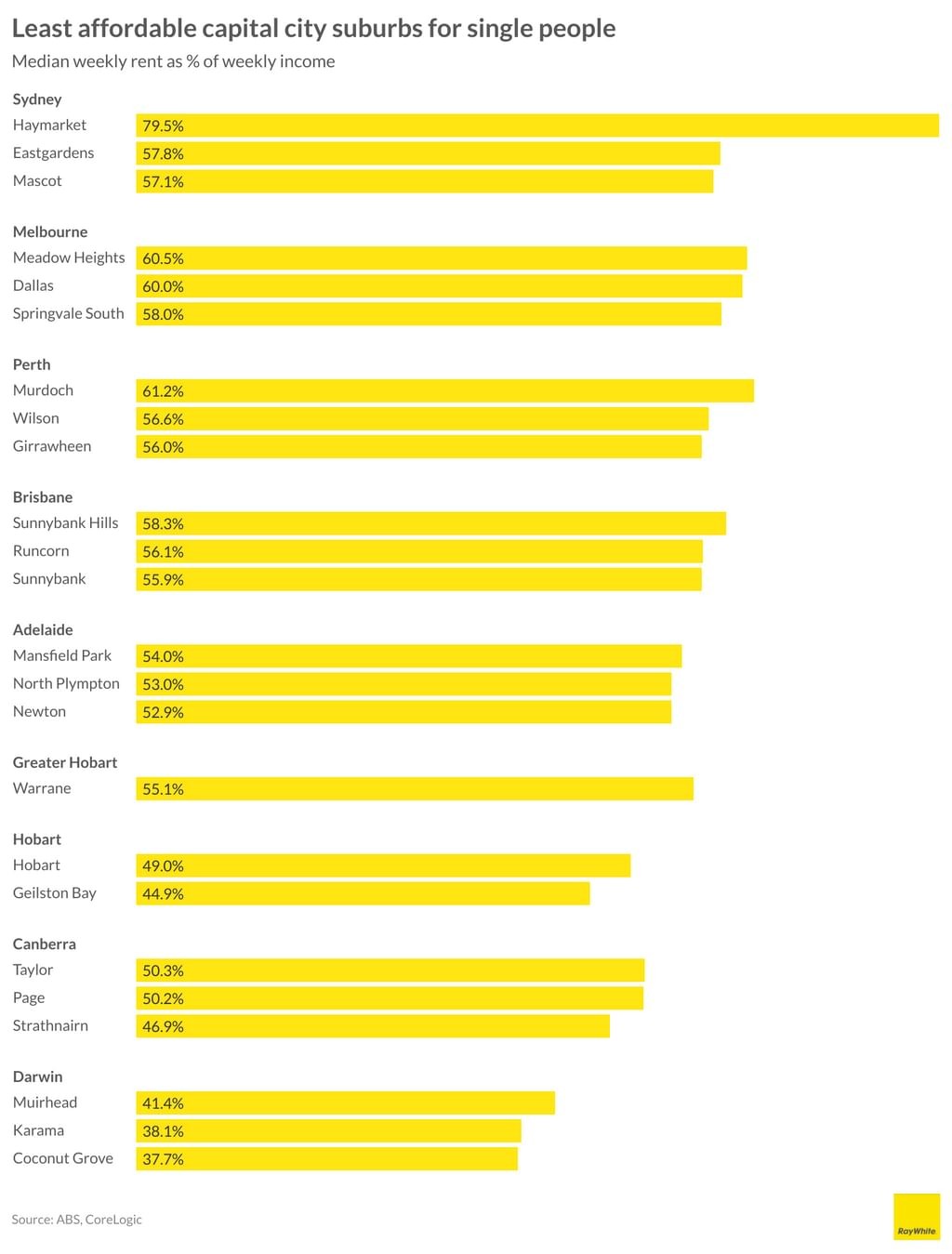The Economist, a weekly magazine, recently undertook an analysis of where it was possible for a single person to affordably rent alone.
The analysis was referred to as the Carrie Bradshaw Index, named after the fictional character in “Sex in the City” where Carrie lives alone in New York, presumably affordably.
To undertake this analysis, The Economist looked at income by city and compared it to the cost of renting a studio apartment in each of those cities. If a person was spending 30 per cent or less of their income on rent, then it was deemed to be affordable. To replicate this analysis, we used ABS data on average weekly incomes and compared it to median unit rents. Unfortunately, data specifically on studio rents is not available however given how few studio apartments there are in Australia, they aren’t easy to find, even if affordable.
The chart below compares median weekly income to that income required to rent a unit affordably (spending no more than 30 per cent of total income). As an example, Sydney average weekly income for 2024 is estimated to be $2,278. To rent a unit affordably, you would need to earn at least $2,333 (based on average weekly unit rent for Sydney of $700 per week). In this case, Sydney is unaffordable for a single person to rent a unit.
While it isn’t surprising that Sydney is unaffordable, very few capital cities are affordable with only the ACT, Darwin and Hobart with average incomes for a single person above that required to rent a unit. Sydney also isn’t the least affordable. The gap is biggest in Brisbane and Adelaide, likely reflecting very strong rental growth for apartments in these cities over the past three years. Regional South Australia and regional Victoria top the list as the most affordable places to be single renters of units.
By suburb, the results are a little bit more unusual. Many of the most affordable for a single person are in expensive areas. This is because incomes are very high in expensive areas but typically rents are relatively low in comparison, particularly in areas where there has been a lot of development.
For example, Hunters Hill comes out as the most affordable for a single person to rent a unit in Sydney, primarily because incomes are very high in Hunters Hill but there are quite a lot of apartments so rents are relatively affordable. In this suburb, unit rents are relatively low at $600 per week but incomes are very high at $2,468 per week. Cottesloe is similar – people with very high incomes live there and in comparison to these incomes, rents are quite affordable.
At the other end of the spectrum, the most unaffordable tend to be areas where incomes are comparatively low. Haymarket in inner Sydney has a lot of students and hence lower incomes. The ratio of rental payments for a unit relative to a single person’s income is high.
The main conclusion from this analysis is that there are affordable places in Australia for single people to rent a unit. For example, very high levels of development in Canberra has made it a good place to rent on your own. In comparison, a lack of unit developments in Brisbane and Adelaide have made renting a unit far more expensive for a single person. As a result, people in these cities need to spend quite a bit more than they earn to rent on their own.
On a suburb level, the results not surprisingly show that renting on your own is fine if you earn a lot of money. Even better if you rent in an expensive suburb with a lot of apartments. This is consistent with the lifestyle of Carrie Bradshaw – likely earning quite a bit of money (columnist) and renting in an expensive city with a lot of apartments (New York). For Australia, the Carrie Bradshaw index holds true.





